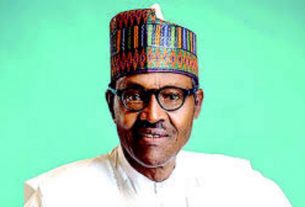By Jacob Akindele
In 2008, I read an article in The Guardian on Chinua Achebe’s ire toward his fatherland, in which the great writer was reminded that had he not been born in Igboland Nigeria, his masterpieces would not have arisen and captured by him for posterity “with such simplicity, potency and impact.” Many Nigerians are justifiably disappointed with the situation of their beloved nation but as individuals, there is much to be grateful for berthing in this part of planet earth.
A multi-lingual country offers the opportunity to imbibe values from the noble aspects of the varied cultures of other ethnic nationalities. As a branded Yoruba who was fondly called National Identity by the amiable Nkem Agbanusi from Obosi of blessed memory, I learnt from the taunting of some fellow teenage mates that truly the body is the housing of the living spirit. Without the spirit the body is lifeless, dead. It was an invaluable knowledge for a teenager who evolved into an inwardly driven man with the resolve never to go against conscience on account of what others might say.
In 1975, an American told a Nigerian friend: “I envy you. In my country everything is built while in Nigeria, you will be part of an up-building.” The young Nigerian returned to Nigeria and pitched his interest in development of road infrastructure. He worked for 40 years towards the establishment of an agency for the funding and administration of roads. Sadly, when a bill was passed in 2019 by the National Assembly, a Presidential veto annulled a 40-year effort of successive federal administrations. It was for him a personal disappointment, among many.
The young Nigerian has had many mentors from every part of this great country. The departed Senator Jalo Waziri of Gombe opened many doors for him and also shared knowledge of Nigeria. In our nation, each ethnic nationality must be clear about its interests and bargain with others; otherwise the organized group will always carry the day. A member of an ethnic group who betrays his people is distrusted and detested by those whose interests he supports because of his personal material gain. Therefore, every man must be faithful and fulfill his obligation in each ring of responsibility: self, family, village, town, state, nation, the earth and God’s wonderful Creation.
There is a need to review the concepts inscribed in Nigeria’s Coat of Arms: Unity, Faith, Peace and Progress. We cannot have any of the four aspirations without justice. There is glaring one-sidedness in the administration of the nation as well as of the administrative units and ethnic groups within states. Our endeavour at democratic form of governance has been a catalogue of injustice.
Our tragic experience of extremism in religion compels self-assessment to ascertain if one is not a sectarian who knows and carries out “only what is taught in a sect. This requires going back to the truths in the sacred books. We read in the Quran: “Be always just, this is closest to Godliness.” We read in the Bible: “Love is the total fulfillment of the Will of God.” The return to these basics will lead to the resolve to liberate self from the shackles of creeds in sects and religions. Living according to the basic truths will result in the increasing ennoblement of each person. Improvement in the country will come from the self-improvement of each citizen. In this awareness, I consciously choose to nurse the hope for the evolving of each person so that my beloved country will have justice, peace and progress; in order to fulfill its role in the comity of nations.
The Guardian





